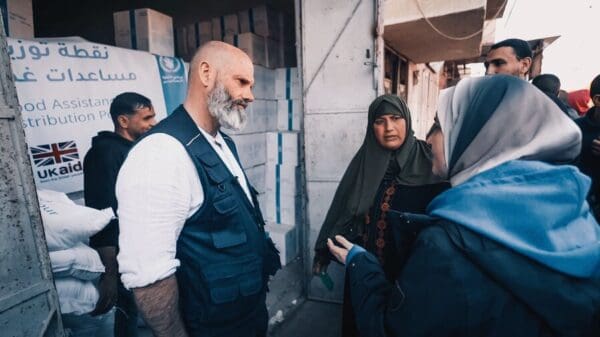Hungry Mothers and Infants: Whose Job Is It to Protect Breastfeeding?
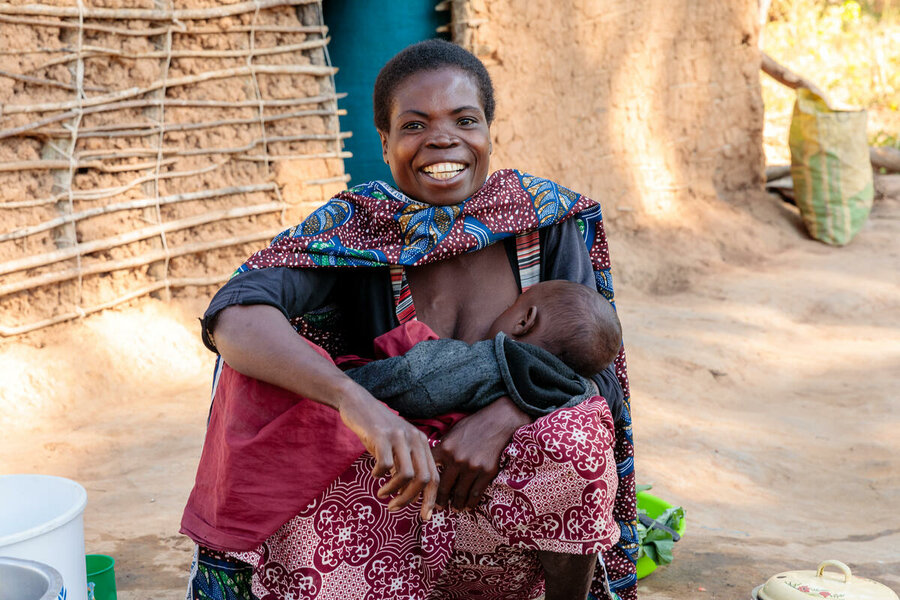
To mark World Breastfeeding Week, we are recognizing those who support vulnerable mothers and babies around the world.
Starting from pregnancy, a mother’s needs to comfortably breastfeed her child are vast. She relies on commitment from all sectors of society to create nurturing environments for breastfeeding, which will protect both her and her child’s health for years to come.
Here are five key players who are critical to supporting breastfeeding women:
1) Fathers and Partners
In addition to providing support to a mother who decides to breastfeed, a father or partner can free up time for the mother by taking on other household duties.
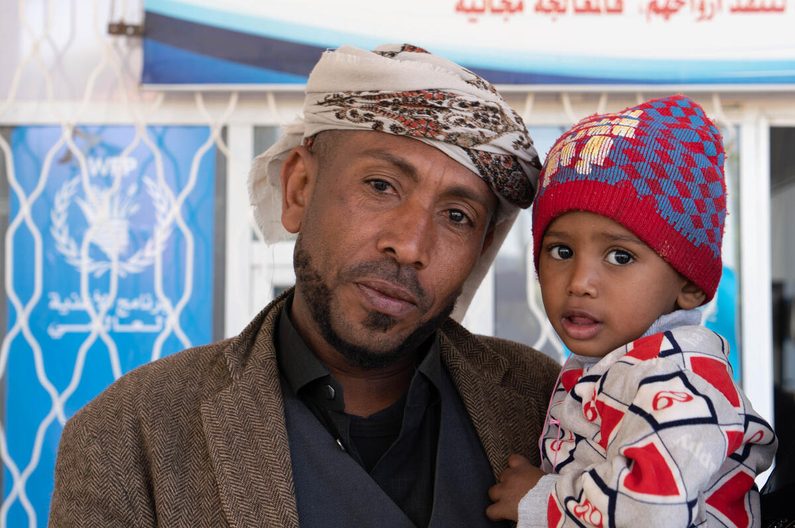
Arafat, a warehouse worker, fled the port of Hodeida with his family for Aden where they receive the U.N. World Food Programme support.
Breastfeeding can also be a family affair by a father or partner learning the breastfeeding basics, attending classes with the mother and spending “skin-to-skin” time with the child to bond.
2) Extended Family
Families play a crucial role in breastfeeding practices. Research shows women who have support and encouragement from their family, and broader social network, feel more comfortable making the decision to breastfeed.
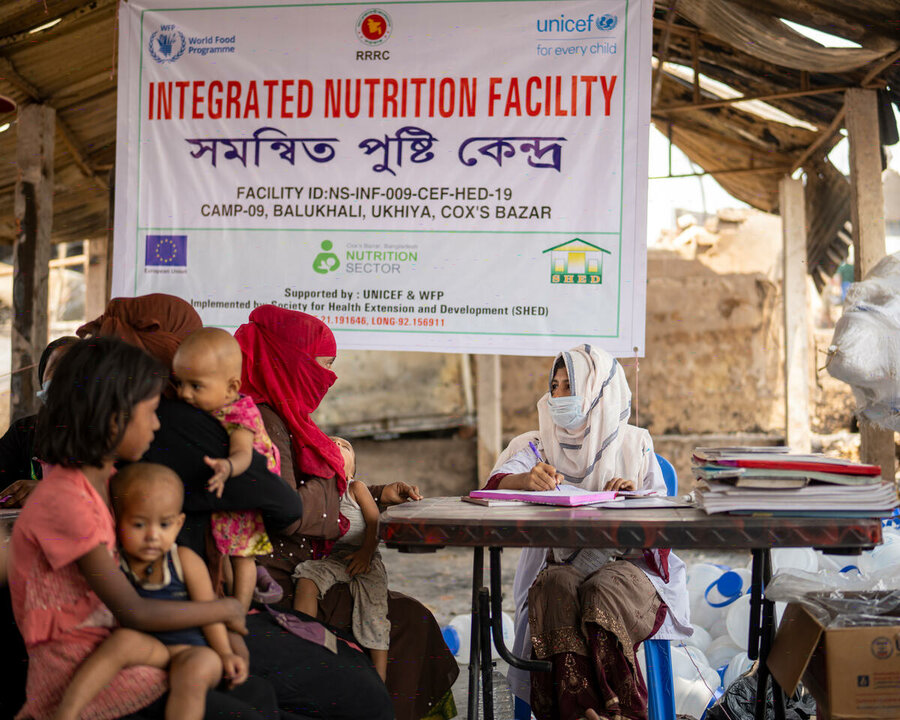
Bangladesh: A temporary clinic set up by UNICEF and the U.N. World Food Programme in the immediate aftermath of the fire that destroyed parts of Kutupalong camp in Cox’s Bazar in March.
3) Government and Health Sector
Health care providers are often the main source of knowledge, tools and resources available to a mother and family. Physicians and nurses have been found to have a key influence on breastfeeding initiation rates and duration. For mothers who decide to breastfeed, it is essential for governments to provide enough resources to health facilities on breastfeeding education and support.
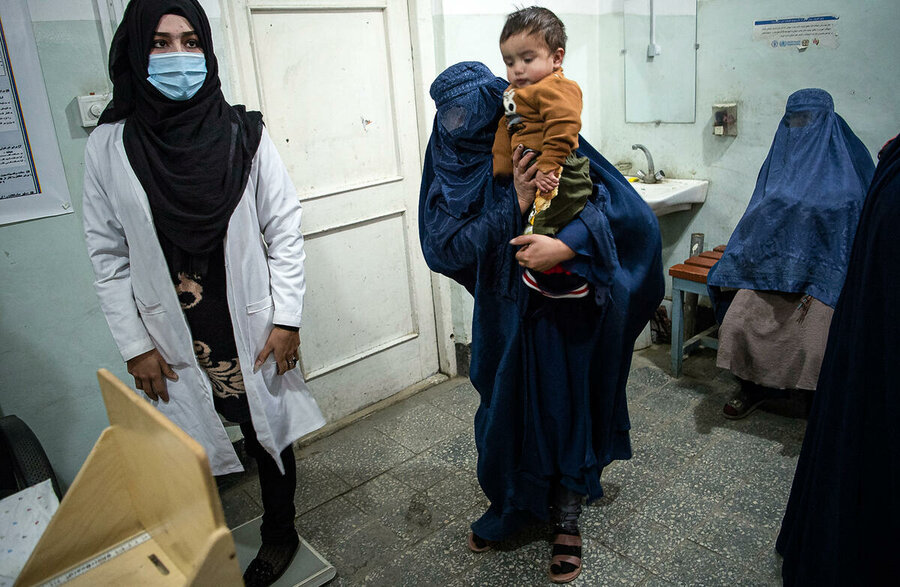
Afghanistan: In Chaharikar, Parwan Province, Afghanistan, a doctor prepares to weigh a 1-year-old child.
4) Community Leaders and Members
Communities play an important role in supporting mothers who breastfeed. Community leaders and members can set up peer support groups, breastfeeding clinics and share tips that can make breastfeeding less challenging.
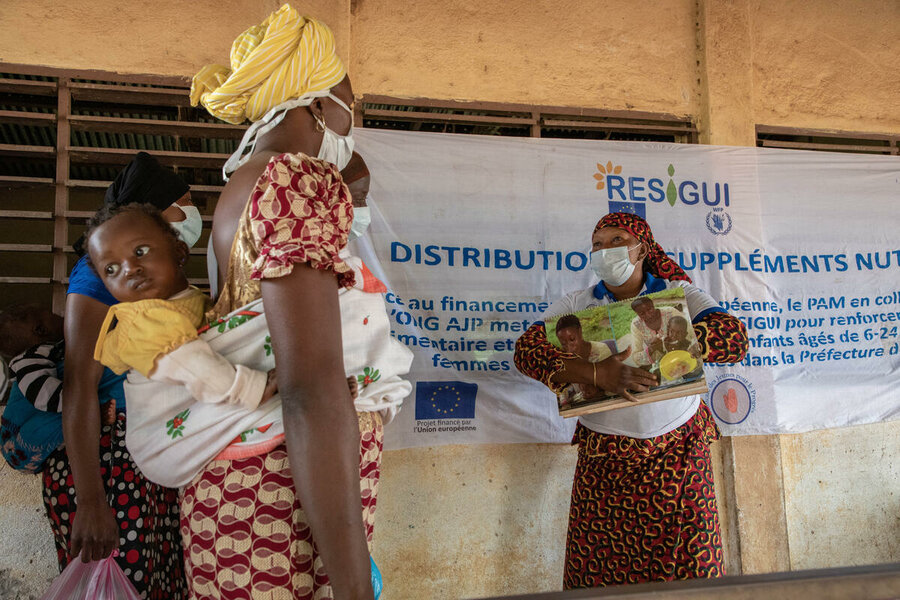
Guinea: A U.N. World Food Programme project funded by the European Union, in Siguiri, Kankan state, supports women and infants.
5) Employers
Employment status and rights play an important role in a woman’s decision to breastfeed. Establishing positive breastfeeding policies, facilities and practices in the workplace to support breastfeeding after returning to work is key.

Zambia: Naomi, a mother supported by WFP in the Mantapala refugee settlement.
Providing a comfortable and private space for breastfeeding, sufficient facilities to express and store breast milk, flexible work hours and rest breaks are a few steps employers can take to create a nurturing environment for breastfeeding women.
Visit our Childhood Hunger and Women hubs to learn more about our programs.




